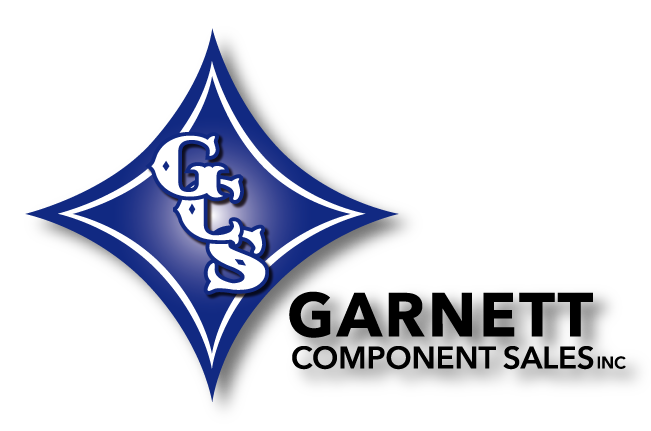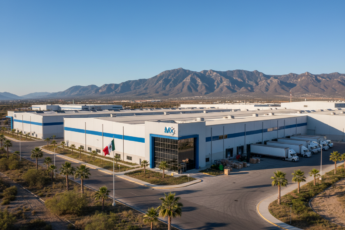The story of the Suburban (Python) brand starts in a small Minnesota garage and ends up on factory floors across the country. What began as a side project machining parts for donut machines turned into something much tougher—protective sleeves and covers built for heat, grit, and repeat use. These products didn’t come from guessing or theory. They grew from trial, field experience, and listening to those who deal with heavy machines every day.
Python Protective Sleeve + Covers isn’t just another product line. It brings together simple tools and smart design, shaped by people who got their hands dirty and figured out what worked by being there. Looking back at how Python products took shape under Suburban Manufacturing Group helps make sense of why they still feel right for OEMs and engineers today. This matters when conditions are tough and downtime simply isn’t an option.
Humble Beginnings: From Garage Jobs to Component Innovation
Brad Barger did not plan on launching a big brand from his garage. He only wanted to take on more machining projects. While working full-time at a machine shop, he started machining small components from a two-car garage in Eden Prairie, Minnesota. His first customer was a mini donut machine. Nothing complicated, just a need for the right part at the right time. Jobs started to pick up as he bid on more projects.
When customers asked for a business name, Brad named it on the spot. Since his shop sat in the suburbs, he called it “Suburban Machining.” The name stuck, and so did his work ethic. Soon the business grew from side jobs to real demand. Parts like the moisture minder drain, developed by Brad’s dad, turned into early standouts in his lineup. If customers asked, Brad found a way to give them what they needed.
These early days were all about putting in the work, answering every call, and finding better ways to meet practical demands. There wasn’t much focus on strategy or business plans. Creative solutions mattered most, and every project was a learning moment that shaped the approach that would build the future for Suburban.
The Tsunami Moment: Turning Field Problems into Real Products
Some business shifts start with a problem you can hear or see—like a shop worker racing to stop a machine from flooding. One problem, one field visit, and one equipment mess kicked off what became the Tsunami product line.
In 1998, a pork plant running the moisture minder drain ran into big trouble. Water kept flooding the air lines every time the line restarted. Brad and Randy Brolander checked out the plant for themselves. After the first shift break, water blasted through the lines, spraying everywhere. Brad looked around and said, “We’ve been hit with a tsunami.”
They didn’t sit back and take notes. They built a fix on the spot. The new air filter handled those water surges and kept the lines from failing. That became the root for the Tsunami product set—real problems on real shop floors, solved by people who cared about the outcome.
The work did not stop at the filter. Solving real pain points set a pattern for what came next: make it in the field, prove it where it counts, and build on those lessons.
Enter Python: Building on Textile Solutions for Real-Use Cases
As problems became more specific, the solutions needed to be just as tough. Randy brought forward a bold idea—protective industrial sleeves and covers meant for high heat, exposure, abrasion, and the long days found in busy machine shops.
Instead of adapting what was available, the team built custom sewing machines from scratch. Sewing hook-and-loop closures into tough textiles became part of the operation. That’s how Python sleeves and covers were born.
From there, the line expanded. There were tubular sleeves, hook and loop wraps, custom-fit covers, and bundling straps. The names left no doubt: Python Straps, Suburban Sidewinder Sleeve. Each filled a direct need. They didn’t start from trend forecasts. Each invention was a practical answer to daily machine wear and those constant trouble spots you find on job sites.
Field-testing was constant. Ideas moved straight to assembly lines and job sites, where they became standard for crews who did not want to keep swapping out worn-out equipment.
At Garnett Component Sales, custom engineered textile solutions are supported for OEMs and manufacturers across demanding industries. This includes guidance on selecting protective covers for critical hoses, bundles, and moving parts—so tough conditions don’t slow production.
Product Meets Brand: How Python Took on a Life of Its Own
By 2016, the textile products needed a name of their own. Chase provided clarity by naming the product line Python Protective Sleeve + Covers. Sidewinder held its spot as a well-known sleeve under that group.
Customers now saw a full range—sleeves, straps, custom-fit fabric shields. Every option supported the same mission of providing dependable protection for cables, hoses, and parts.
Suburban Manufacturing Group stayed as the parent company, uniting Python, Tsunami, and LubeMinder under one roof. Customers did not have to guess. One company, three brands, all focused on performance and reliability.
Built for Grit: Why Python Covers Deliver Confidence on the Job
Python didn’t get its start in a lab. It was built by people who had already struggled with products that failed under tough use. Protection was the focus, and every stitch points that way.
Python sleeves and covers take the heat, the grease, and daily movement without falling apart. They help keep cables together, wrap around hydraulic lines, and cushion high-temp areas without adding complexity. Quick to use, easy to inspect, tough enough for everyday knocks and scrapes—users know they can depend on them.
Engineers pick these solutions because it frees them from worry. There is no second guessing—just a straightforward answer that gets the job done.
Garnett Component Sales offers application engineering support for hose management and textile solutions, helping OEMs quickly spec products that work for their real setting.
Python covers prove their worth day after day—like sleeves that last through farm cycles and straps that hold on where plastic ones snap. They do not need to be fancy to be trusted.
Threads that Tell a Story: Why Origins Still Matter
There’s something real about gear that grew out of job site challenges and shop floor experiments. Suburban (Python) proves this from start to finish. Every product exists because someone saw something break, asked why, and then invented a fix.
If you dig into product design or procurement, these stories make the difference. Not all solutions were born with a story, but Python was. Every seam and fit came after hearing what failed in the field and moving fast to make it right.
That’s why the Python name still stands out. It lives beyond accessories or add-ons. It represents decades of hard lessons, constant improvements, and grit. Each product is more than a part—it’s the trusted answer for tough jobs, ready to prove itself again.
From garage-built machines to rugged textile solutions, Python’s journey proves that real-world challenges shape the best ideas. We’ve seen what it’s like to battle heavy use, heat, impact, and wear. That firsthand experience delivers practical designs that keep going instead of breaking down. Whether you’re sourcing proven metal fabrication materials or need ideas for resisting wear in tough environments, Garnett Component Sales connects engineers and OEMs with what works. Let’s talk about what protection your equipment actually needs.






